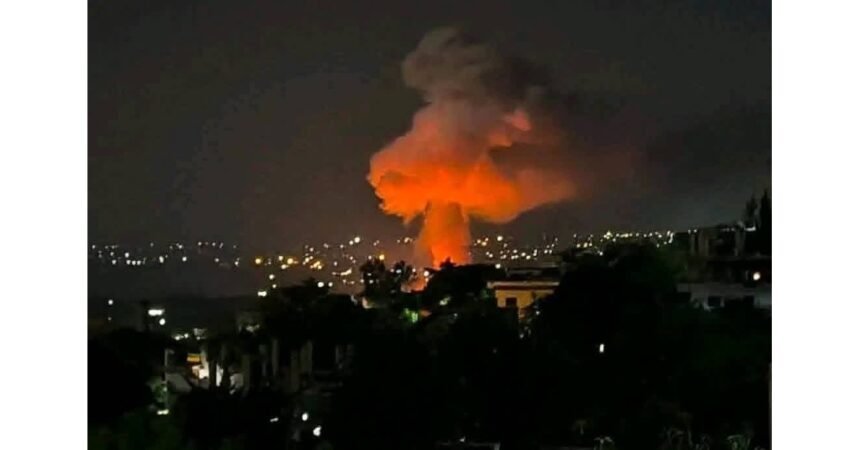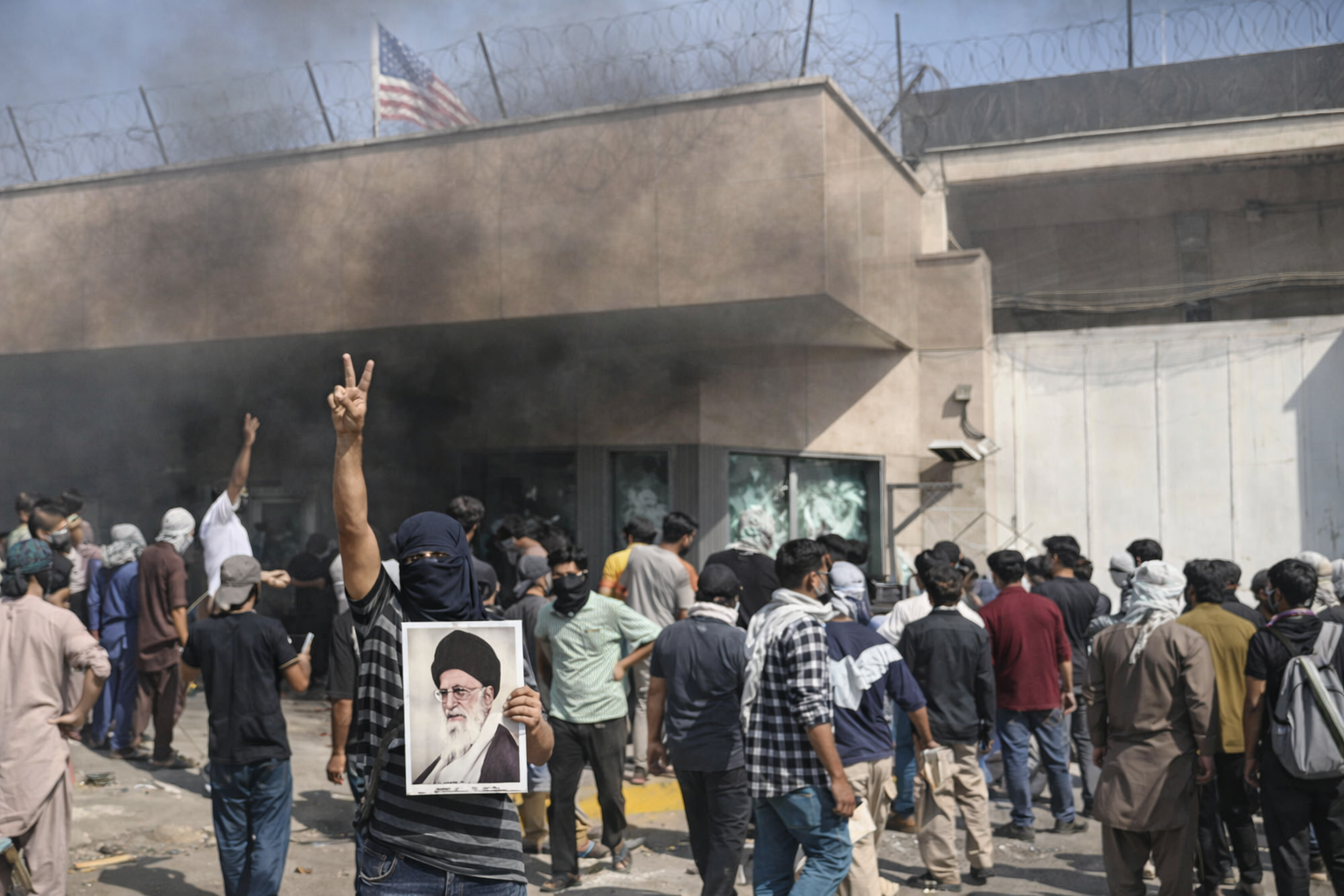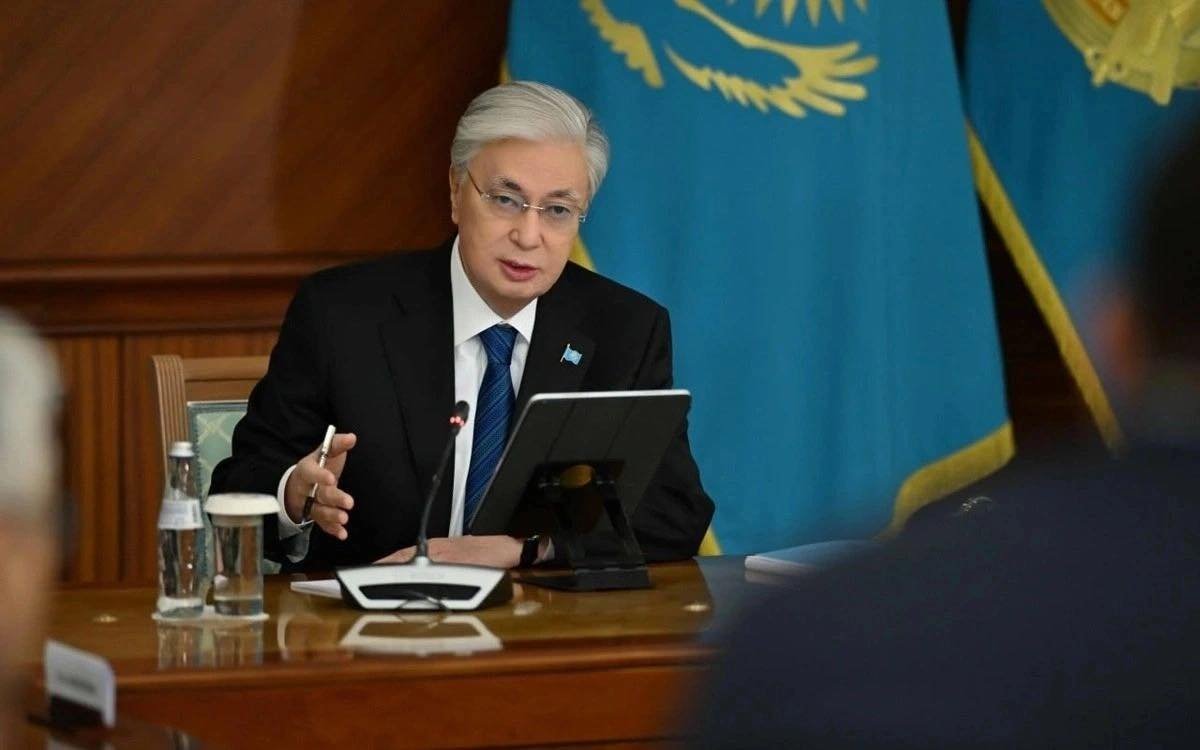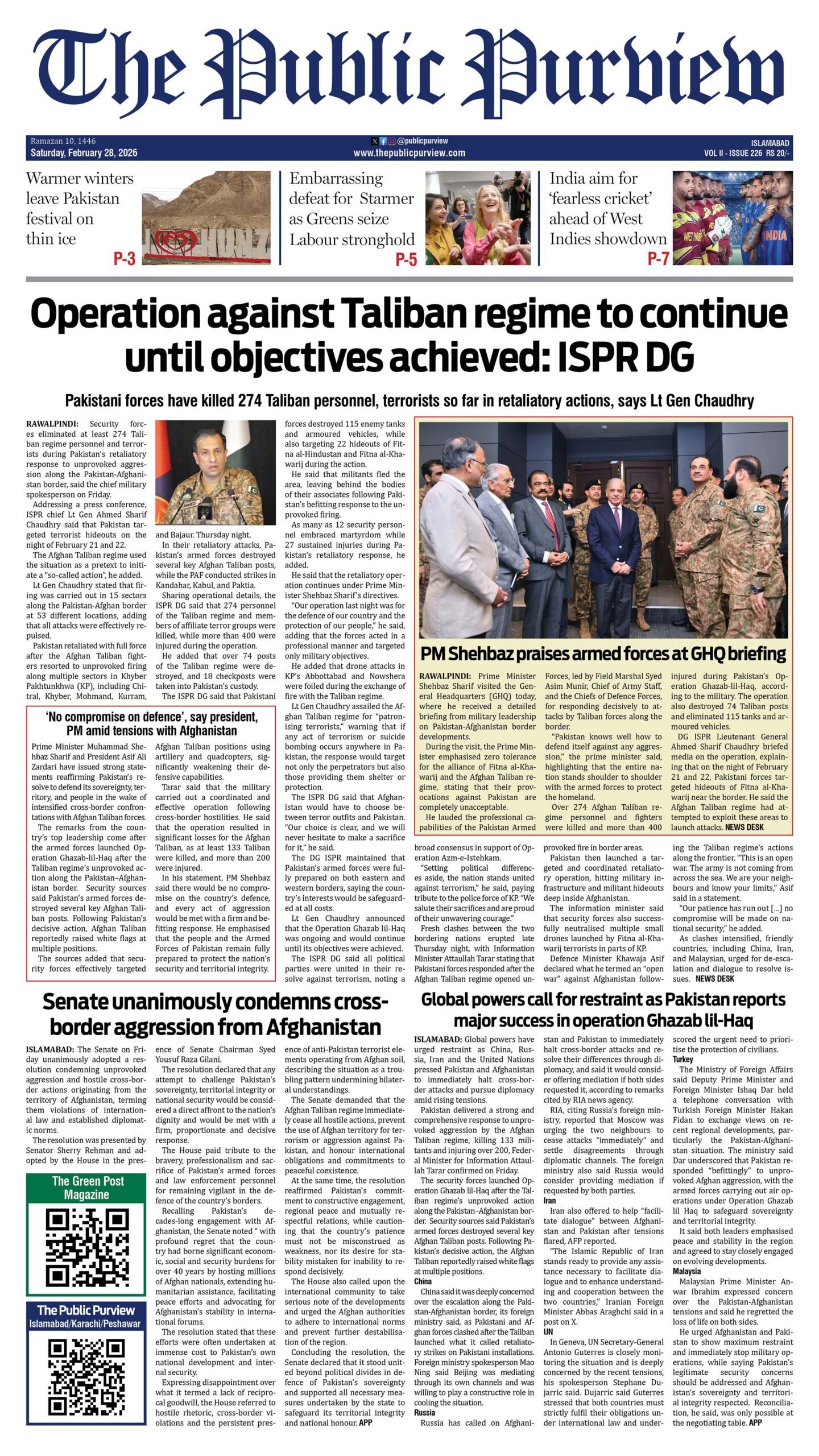
When a household member catches a mild fever or a common cold, our first response is simple and sensible. We reach for remedies taught by elders, rest, and avoid heavy medicine unless it becomes necessary. If these measures fail, we turn to medicines at hand. When illness persists, we consult a physician, submit to tests, and, if life demands it, accept the surgeon’s knife.
That sequence — care, counsel, and, only as a last resort, decisive intervention — is more than a matter of health. It is a prudent moral order. The conduct of states in the face of threats along their borders should follow the same logic. Pakistan’s approach to its border with Afghanistan must reflect this very principle.
Pakistan’s history of neighborly conduct toward Afghanistan is long and visible. When the Soviet Union invaded Afghanistan, Pakistan opened its doors to millions of refugees fleeing the war. At the height of that crisis, nearly three million Afghans lived within our borders. Refugee camps and urban settlements sprang up, supported by civic compassion and international assistance. This generosity became a defining moment in our modern history and remains one of our nation’s most humane chapters.
Yet charity and sacrifice do not mean endless tolerance for actions that harm the benefactor. For decades, Pakistan has urged successive Afghan governments, including the current authorities in Kabul, to stop their territory from being used as a base for attacks on Pakistan. These calls have come through diplomatic channels, public statements, and appeals for regional cooperation. Again and again, Pakistan has highlighted the danger posed by cross-border militancy and the need to secure peace along the Durand Line.
States must begin with persuasion and patient diplomacy. That is the prescription of prudence. When persuasion leads to cooperation, peace follows. The long human ties between our peoples — shared faith, family links, trade, and cultural exchange — can then flourish. But when repeated appeals are ignored and violent actors continue to exploit porous borders, a sovereign state must act to protect its citizens.
That duty is not an act of aggression. It is an act of responsibility — to safeguard life, uphold law, and ensure that the innocent are shielded while those who commit violence face justice. Pakistan’s official statements and military briefings have repeatedly emphasized this principle. They show a consistent focus on intelligence-based operations, careful targeting, and a moral commitment to distinguish insurgents from noncombatants. This is the moral foundation of Pakistan–Afghanistan border security.
The regional context makes these efforts even more complex. Rivalries and proxy conflicts have too often turned local grievances into tools of instability. External powers have exploited Afghanistan’s internal fragility to pursue their own agendas, creating ripples of unrest across the region. These interferences threaten every neighboring country, not just Pakistan.
The May 2025 episode — a brief yet dangerous confrontation between India and Pakistan — revealed how swiftly escalation can follow even a minor strike. Within four days, both sides found themselves on the edge of conflict. The lesson is clear: strength without fairness provokes retaliation, while caution without determination invites challenge. The crisis underscored the need for both prudence and resolve, for open diplomacy supported by credible defense.
Practical realism does not exclude moral leadership. Pakistan’s consistent call for mediation — to regional powers, Islamic allies, and international partners — deserves to be reinforced, not ignored. When responsible neighbors and organizations step forward with guidance and oversight, the chances for peace grow. Silence or hesitation from those who could help, however, weakens diplomacy and narrows the options for peaceful resolution.
The goal should never be punitive action. It should be to restore conditions where trade, travel, and family ties can continue without fear. Ordinary people on both sides of the border deserve security and stability far more than they deserve suspicion or siege.
True patriotism demands balance. It is neither blind belligerence nor naïve forbearance. It calls for moral clarity — knowing right from wrong — and the courage to defend the innocent while seeking peace that endures. The surgeon’s knife must remain the last resort, used only when every other remedy has failed. Yet no one should mistake restraint for weakness. Protecting the homeland is both a duty and a right.
A nation that once gave shelter in another’s hour of need now asks only for reciprocity — that memory be honored with peace, and friendship not abused by hostility. If Afghanistan’s leaders and people value the shared bonds between us, they will understand that true friendship forbids the use of a friend’s soil for aggression.
Above all, this moment calls for statesmanship. We need leaders who summon regional partners and Islamic allies to the table, diplomats who keep every channel of dialogue open, and security services that act lawfully and with precision. We need citizens who stay united behind efforts that protect life, liberty, and peace.
If malign actors continue their path despite counsel and cooperation, Pakistan will, with steady hands and a heavy heart, do what is necessary to defend its people. But even then, the ultimate goal must remain an honorable and lasting peace — a peace earned through discipline, justice, and the moral conviction that strength best serves when guided by restraint.







 Today's E-Paper
Today's E-Paper